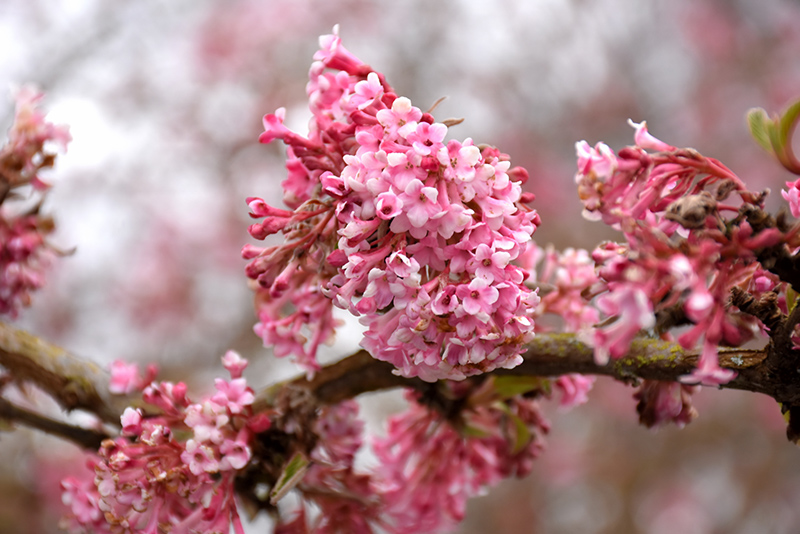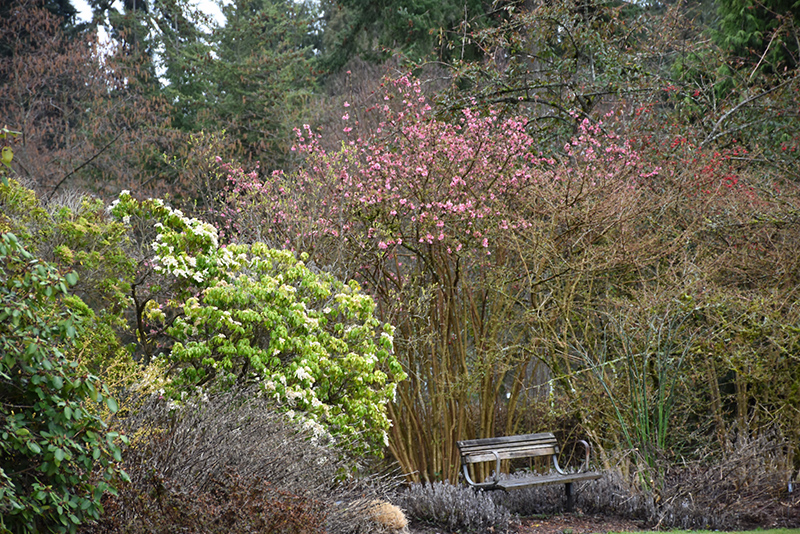Height: 8 feet
Spread: 8 feet
Sunlight:
![]()
![]()
Hardiness Zone: 5a
Other Names: Pink Dawn
Description:
Nothing heralds the ending of a long winter like the sweet fragrance of this shrub, which depending on the weather may bloom anywhere between New Years and March; soft pink flowers are attractive close-up, but it's the fragrance you'll be after
Ornamental Features
Dawn Viburnum features showy clusters of fragrant shell pink flowers at the ends of the branches in late winter, which emerge from distinctive cherry red flower buds before the leaves. It has dark green deciduous foliage which emerges deep purple in spring. The serrated pointy leaves turn an outstanding burgundy in the fall. The black fruits are held in clusters from mid summer to early fall.
Landscape Attributes
Dawn Viburnum is a multi-stemmed deciduous shrub with an upright spreading habit of growth. Its average texture blends into the landscape, but can be balanced by one or two finer or coarser trees or shrubs for an effective composition.
This is a relatively low maintenance shrub, and should only be pruned after flowering to avoid removing any of the current season's flowers. It is a good choice for attracting birds to your yard, but is not particularly attractive to deer who tend to leave it alone in favor of tastier treats. It has no significant negative characteristics.
Dawn Viburnum is recommended for the following landscape applications;
- Accent
- Mass Planting
- Hedges/Screening
- General Garden Use
Planting & Growing
Dawn Viburnum will grow to be about 8 feet tall at maturity, with a spread of 8 feet. It tends to be a little leggy, with a typical clearance of 2 feet from the ground, and is suitable for planting under power lines. It grows at a medium rate, and under ideal conditions can be expected to live for 40 years or more. While it is considered to be somewhat self-pollinating, it tends to set heavier quantities of fruit with a different variety of the same species growing nearby.
This shrub does best in full sun to partial shade. It prefers to grow in average to moist conditions, and shouldn't be allowed to dry out. It is not particular as to soil type or pH. It is somewhat tolerant of urban pollution. This particular variety is an interspecific hybrid.



